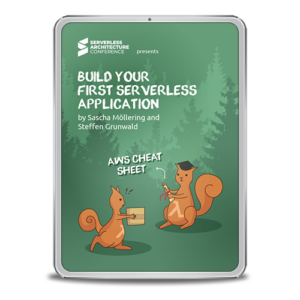We all know what it’s like to have sensible intentions but fail to act on them in a timely fashion. Whether it’s a much-needed dietary adjustment, a work project that’s dull but important, or some general housekeeping, you can put something off indefinitely while reassuring yourself that you will get it done eventually. It’s one of the more frustrating parts of being human.
As a result, you can end up delaying something (or even forgetting about it entirely) and just carrying on with your daily routine — that is, until something shakes you from your stupor and you notice that you really should have taken action already. Worse, the culprit is often a desire to get things right: waiting for the perfect movement, it doesn’t occur to you that it doesn’t exist.
I mention all of this because it applies very neatly to the matter of cloud migration. Most big businesses have long since begun to store their data in the cloud and outsource their professing to remote servers, but there are holdouts: individuals and companies who either don’t understand what the cloud is or who erroneously think they’re better-served avoiding it.
If you run any kind of business (large-scale enterprise, small company, or even personal brand) and you haven’t moved to the cloud yet, then that’s a mistake you need to rectify with great urgency. Here are four reasons why the optimal time to move to the cloud has already passed:
It allows you to scale indefinitely
Operational flexibility is extremely important, because business is fundamentally unpredictable. You can expect a downturn but see an upswing instead, or anticipate steady sales for several months only to see some kind of catastrophic event disrupt everything and leave you in a tricky position. To put it another way using a convenient metaphor, you need to make hay while the sun shines — and the cloud is perfect for that.
When things are going your way, you can draw as much processing power as you need, just paying as you go. And when you want to invest in your software infrastructure, you can find a cloud solution distributor with the expertise and connections (for instance, intY, a ScanSource Company has established relationships with vendors like Microsoft and Acronis) to help you figure out which packages would return the most value for your investment in them.
It’s considerably more economical
We just used one metaphor for dealing with good times, but what about the bad? Well, you must tighten your belt when times get tough, and that’s something that’s vastly easier the more elements of your daily business activity are based in the cloud. It’s akin to renting instead of buying, only buying property can be a good investment, while buying hardware and software that will be near-obsolete in six years isn’t a good investment at all.
If your business takes a hit and you start to struggle, you can cut back on your monthly payments, lower your resource use, and ride out the challenging circumstances. If you invest heavily in local processing servers, on the other hand, then no longer needing them for a spell doesn’t make it any less necessary to keep making your equipment payments.
It’s a vital improvement for security
Security in the working world is more of a concern today than ever before, though it isn’t necessarily about systems getting weaker: instead, it’s about more processes and pieces of data being shared online, and criminals learning to profit from taking advantage of this. It might seem odd to address this by moving data online — if data being shared online makes it more vulnerable, then also storing it online sounds worse — but it actually makes a lot of sense.
Not only are cloud storage companies far better equipped to protect their data servers from local attack, but it’s also the movement of data online that introduces most of the vulnerability, not the storage. And since cloud service providers can also handle end-to-end encryption and tightly control security in general, it’s clearly preferable to let them do so.
Lastly, security should extend to the backup of vital data, because even top-notch storage can fail — and when you use cloud storage from a reputable company, you can relax in the knowledge that your files are protected by multiple layers of redundancy.
It makes flexible working easier
It’s been a long and often-tricky process, but employers throughout the world are at last coming to see the value of flexible working (hence the rise in sites that deal exclusively in remote working positions, such as We Work Remotely). Whether they’re letting employees work remotely, allowing them to set their own hours, or doing both, they’re finally moving past their irrational reluctance and accepting that these changes generally boost morale and productivity.
Some businesses still struggle to benefit from this seismic shift in standard procedure, though, and one of the most common reasons is that they’re not set up to use cloud storage and processing. Employees who wish to work from home must take the necessary files with them and ensure that they have all the relevant software installed (because if they overlook something vital, they’ll find it hard to get anything done until they’re back in their offices).
he more of your day-to-day processes you have based in the cloud, the easier it is to relax about how your workers get things done, and — also importantly — the more luck you’ll have attracting new talent. There was a time when a good salary could convince almost anyone, but things have changed and people now care just as much (if not more) about perks vital to mental and physical health (like gym memberships, and, yes, remote working).
Businesses can still get by without using any cloud technologies or utilities, but it’s becoming increasingly difficult to compete while clinging to outmoded data storage and processing structures. If you’ve yet to embrace the power of the cloud, then don’t delay it any longer: it might be tricky to handle the migration, but you’ll need to cross that bridge eventually, and biting the bullet now will save you a lot of trouble in the long run.





